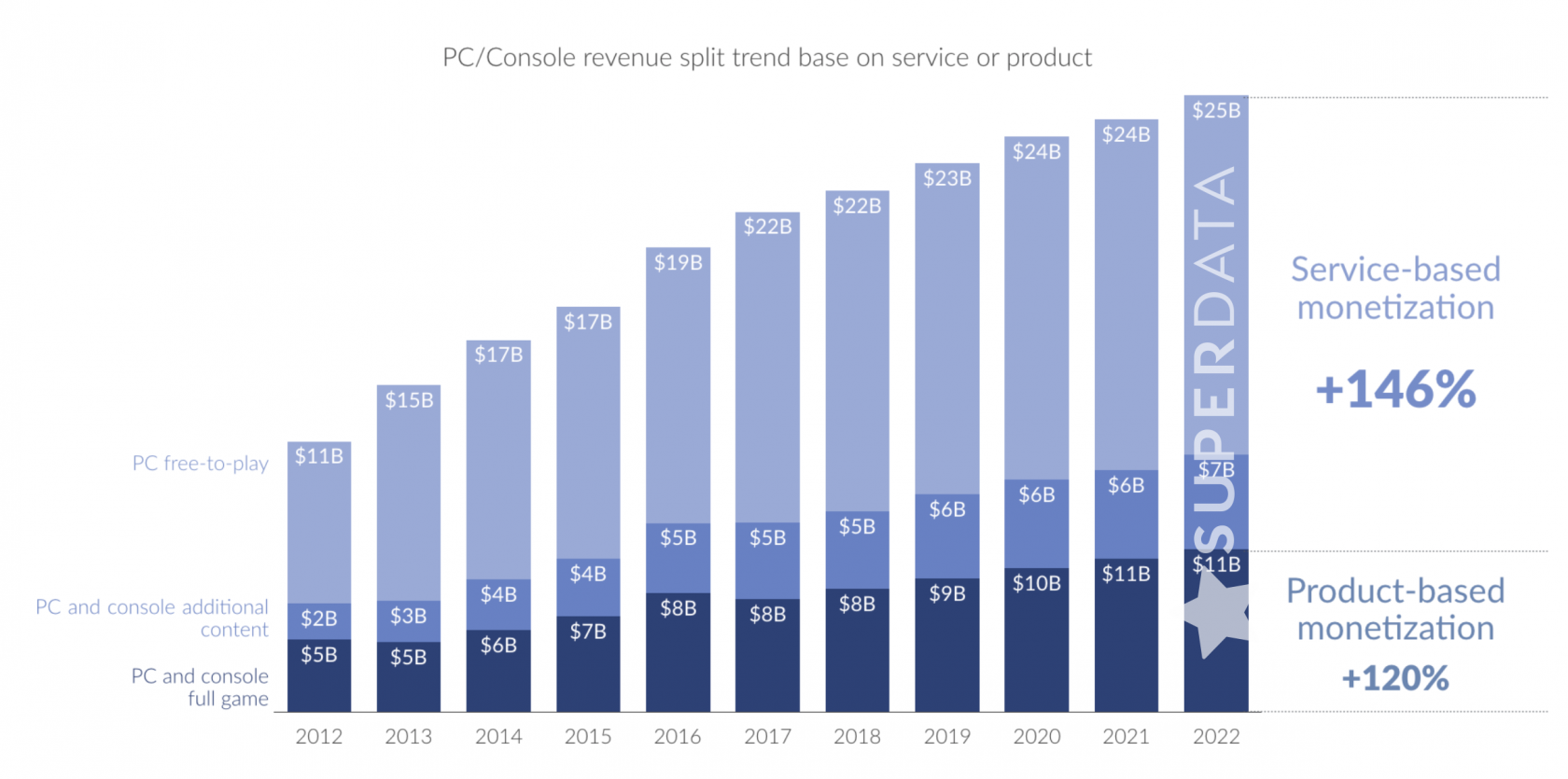
With the Star Wars Battlefront II loot box saga, EA proved it was possible for the most hated company in the games industry to become even more despised. So why did it introduce a system that ultimately wiped $3 billion off its stock value? Money, of course. And while microtransactions may appear more unpopular than ever before, they continue to make billions for developers and publishers, especially in the free-to-play market.
A recent report from market research data firm SuperData shows that when it comes to free-to-play titles on the PC, the money generated from microtransactions is astronomical; this year, FTP gamers will spend $22 billion on in-game purchases. That’s double the amount spent in 2012, and almost three times more than the $8 billion revenue generated by all full game sales across PC and consoles in 2017.
Free-to-play titles do rely heavily on microtransactions, of course. The recent outcry is mostly over the systems that appear in full-price game offerings. But it seems this isn’t stopping consumers from spending extra money once they’ve purchased a game. SuperData’s additional content category, which covers microtransactions and DLC in full releases, is set to generate $5 billion this year.

“Walking a fine line between increasing content offerings and engagement (and of course revenue) and alienating gamers, the ongoing experiment of microtransactions has had successes and failures,” said SuperData.
“Although gamers are quick to complain that publishers are excessively monetizing additional content for games, players continue to support service-based monetization with their wallets.”
Battlefront II’s additional content—loot boxes—has seen the company become about as loved as Ajit Pai. The system is the "poster child of a new and uncomfortable growing pain for the games industry," as SuperData put it. But while this could mean changes to future loot boxes to avoid similar controversies, microtransaction sales aren’t slowing down. By 2022, they’re expected to generate $25 billion from free-to-play games, while additional content in full-price titles is predicted to increase to $7 billion.
https://www.techspot.com/news/72104-microtransactions-ftp-pc-games-generate-22-billion-2017.html